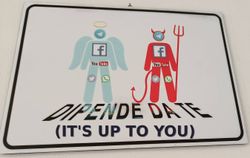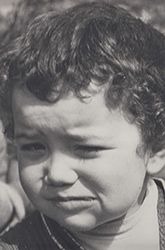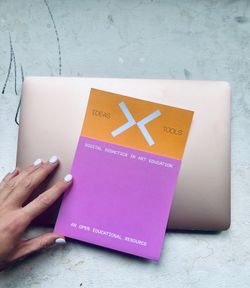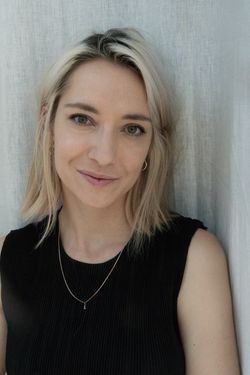TUE 21
back
Lectures
Opening Dsign Symposium Pt. 1
16:00–18:00
w/ Carlo Milani, Onur Olgaç, Helena Schmidt
@/
Kunstuniversität Linz, Audimax, 1.floor
Domgasse 1, 4020 Linz
Convivial Technologies (Online)
— Carlo Milani

16:20-16:40
Smartphone? Social media? Cutting-edge technologies? AI? It’s up to you, common sense says. YOU can use them well or badly.
This narrative depicts humans as absolutely free subjects who make well-considered choices to maximise their utility, employing tools to achieve their ends. But machines are not all the same, indeed, each has its own specific characteristics - affordances that favour some uses over others. Mass digital systems, developed by global corporations, favour toxic interactions based on the self-abuse of the human dopaminergic system. Nudging and gamification make them even less neutral.
The technologies we live with reveal much about the way we humans treat ourselves and the world, confronting us with our contradictions. Every choice is relevant, every deviation from the norm can give rise to a different evolution, towards convivial technologies.
Carlo Milani

Carlo Milani (PhD) aims to reduce technical alienation by translating and writing essays - spiced with hacker attitude. Alongside his publishing, teaching and research activities, Carlo works as a computer scientist with alekos.net to develop appropriate information technologies. Under the Ippolita heteronym he published, until 2018, various essays including Open is not free (2005), The dark side of Google (2007), In the Facebook Aquarium (2012). He currently holds lectures and training courses based on hacker pedagogy with C.I.R.C.E. (International Research Centre for Electric Conviviality - circex.org). His last book is Convivial Technologies (2022). For warmth, he goes into the woods for wood.
Emancipation 101 for designers: can design be apolitical?
— Onur Olgaç
16:40-17:00
Free and open source software have an infamous reputation for being unaccommodating, or even in extreme cases straight up unusable. While there is still some truth in this overgeneralization, open source -alongside Linux- has come a long way from its clumsy early-days of arguably failing to keep up with modern computing needs for the end user.
Considering further specific needs in place, design tools can be seen as an additional layer to the challenge of providing alternatives to proprietary workflows. With inconceivable amounts of marketing and R&D budgets, tech companies made sure to dominate the world of design on how its technical needs -which get passed on as responsibilities to the designer- continue developing in their tightly kept environment.
From licenses to advertising schemes, the talk will focus on the ways certain narratives surrounding tooling are kept in place within the design world, and try to shed light on the true price of “technical industry standards” in design.
(image from: https://www.gimp.org/tutorials/Floating_Logo/.)
Onur Olgaç
A system architect, sysadmin, and lecturer at present, Onur Olgaç works as a consultant and AI systems maintainer in the Linux ecosystem for secure & scalable open-source infrastructure.
With a BSc. in Computer Science and an MA degree from Interface Cultures, his research on the politics surrounding technology within artistic contexts lead to the development of his teaching series “Digital Sovereignty” that aims for the emancipation of the end user.
He is currently lecturer and co-curator for the “Human Rights in the Digital Age” cluster within the Applied Human Rights MA program at the University of Applied Arts Vienna, and also teaches at the Interface Cultures MA program in the University of Arts Linz.
Finding Tools, Working on Ideas.
Introducing Digital Didactics in Art Education (didae.eu)
— Helena Schmidt

17:00-17:20
The lecture will present the website didae.eu, which is the result of the international Erasmus+ research project “Digital Didactics in Art Education” (2021-2023). The OER platform provides an overview on easily accessible digital tools for art making and design. This includes digital tools for drawing, painting, sculpting, animation, augmented reality, video, photography, gaming and game development, graphic design, photo editing and photo manipulation, instructions for these tools and classroom assignments (“ideas”). The presentation provides insight into the criteria for the selection of the project’s tools and connected work assignments. The best-practice tools and ideas represent a radically new approach to critical, emancipatory, intersectional, contemporary post-pandemic didactics of digitality in art education in relation to local and international policies.
Helena Schmidt

Dr. Helena Schmidt is an art scholar and art mediator in theory and practice. She works as a post-doc at the Academy of Fine Arts Vienna where she completed her doctorate on the image concept of so-called “poor images” (according to Hito Steyerl) under the supervision of Prof. Elke Krasny. Her dissertation was awarded the honorary award for scientific works 2022/23 by the Academy of Fine Arts Vienna. Helena Schmidt also teaches at the Bern University of the Arts where she worked until 2019 at the Institute for Art Education. From 2020-2022 she was co-head of mediation at Vienna Design Week. Main fields of interest: Digital imagery, critical art and design education, poor image art education (helenaschmidt.com).
Photo: Romina Achatz